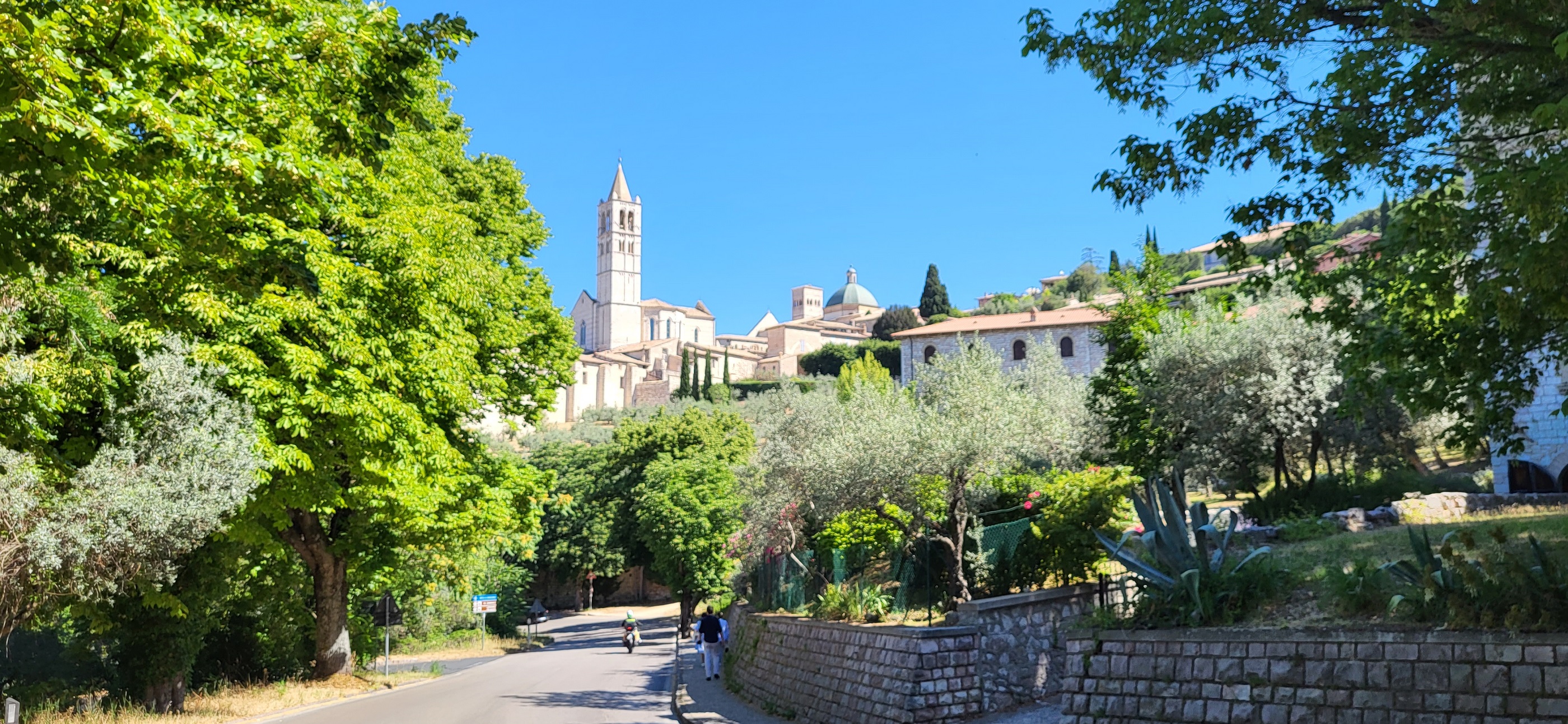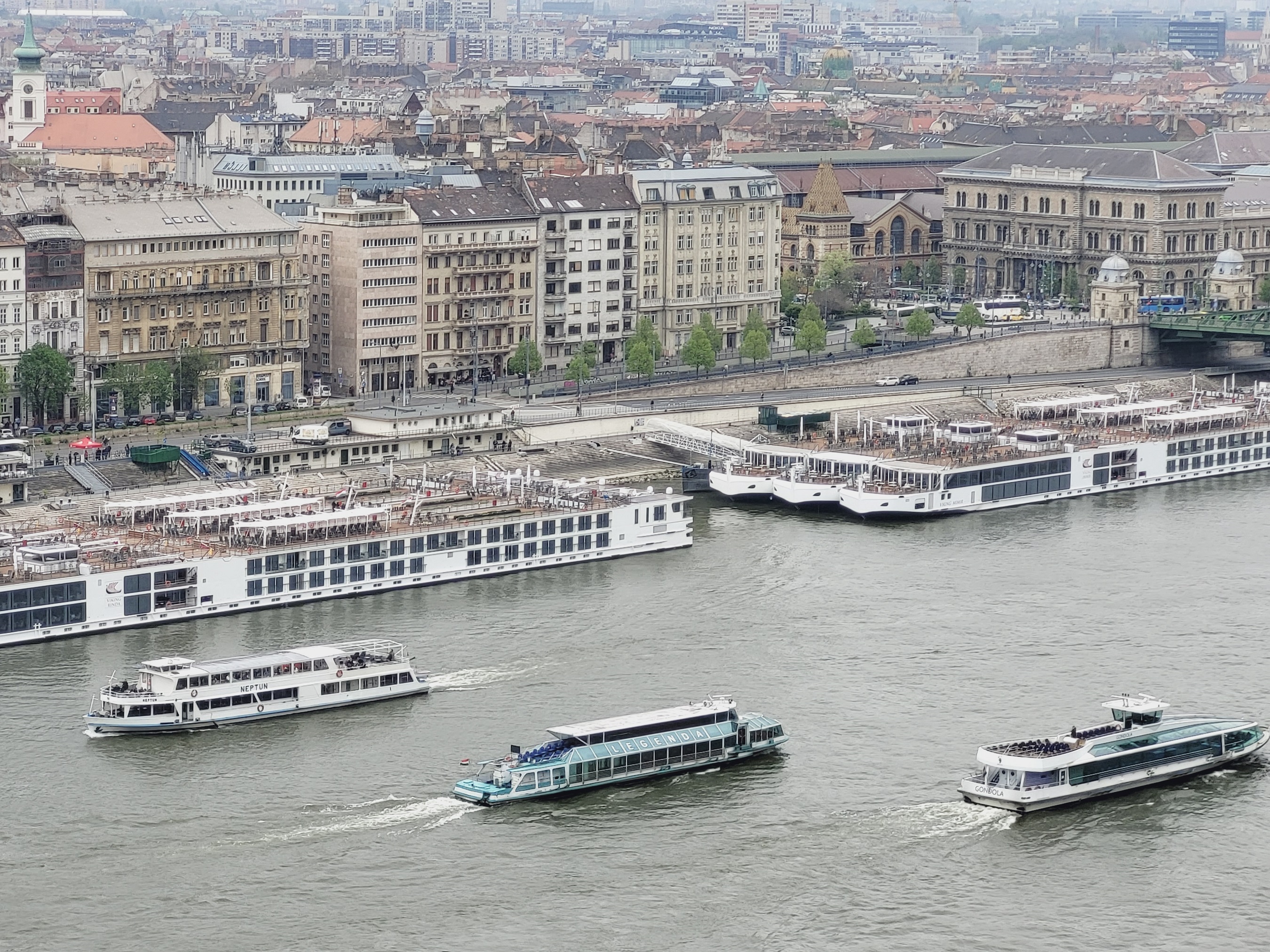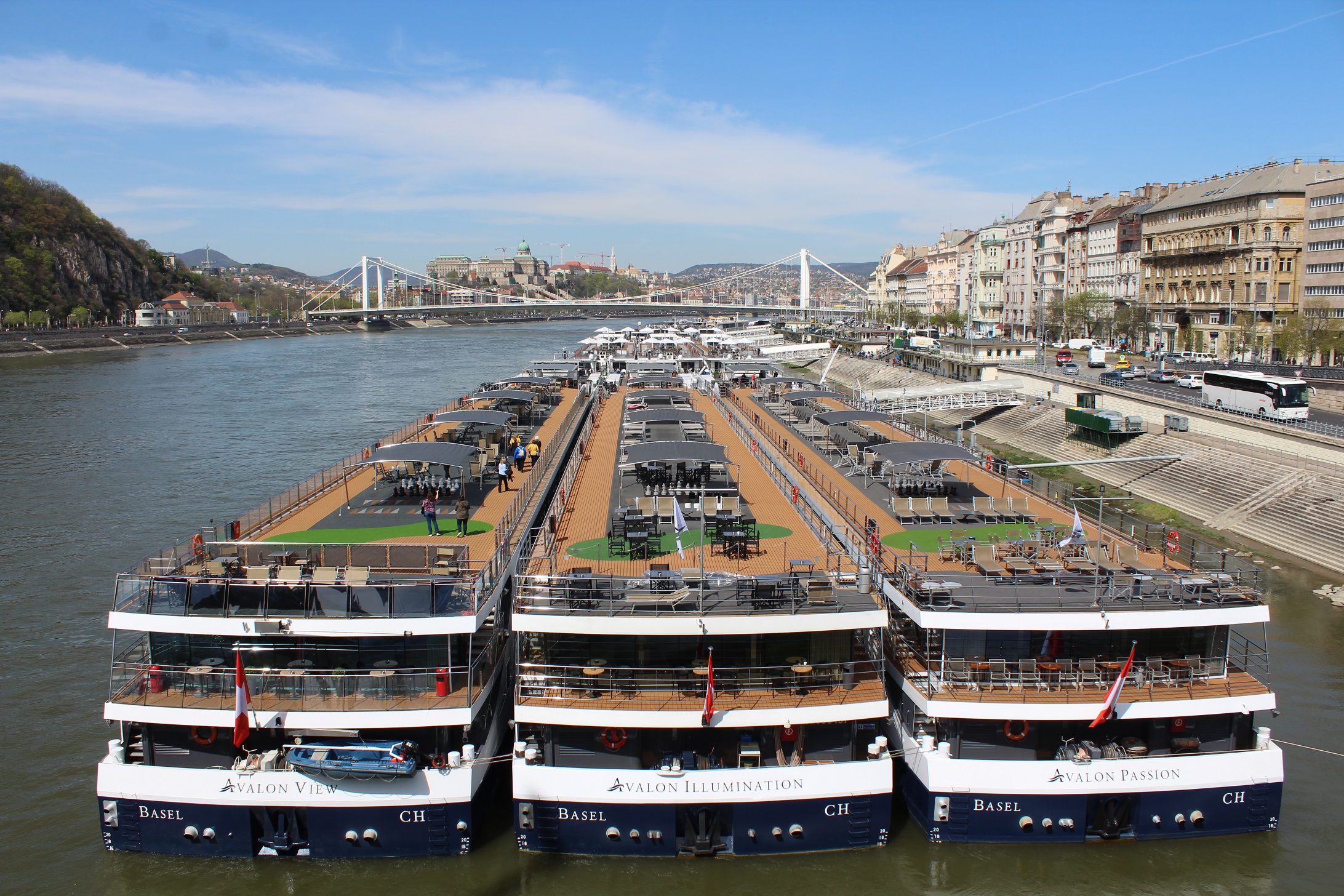.
Kosovo
August 07, 2022 Kosovar authorities have launched an investigation into the August 6 shooting incident, in which they say 10 shots were fired at a border-surveillance unit attempting to launch a patrol boat in Lake Uyman near the town of Zubin Potok. Municipalities in northern Kosovo - including Zubin Potok, northern Mitrovica, Zvecan, and Leposaviq - are inhabited by an ethnic-Serbian majority in the mainly ethnic-Albanian country. Tensions between Kosovo and Serbia have risen recently after Kosovo said it would require Serbs living in the north of the country and using Serbian car license plates to apply for plates issued by Kosovar authorities. Ethnic-Serbian protesters blocked border crossings in the region in protest at the requirements. Kosovar authorities agreed to delay implementation of the requirements for 30 days after the border barricades were removed. About 50,000 ethnic-Serbs live in the north of Kosovo, but they do not recognize the country’s 2008 declaration of independence from Serbia, and they maintain close ties to Belgrade. (Source: RadioFreeEurope)
Russia
August 10, 2022 Experts say the situation at Zaporizhzhia - where 500 Russian soldiers and 50 pieces of heavy machinery, including tanks, are stationed, according to Ukraine - doesn't warrant warnings of a Europe-wide disaster. The risks from shelling are limited given the reactors are protected by up to 10 meters of concrete, according to Cizelj, president of the European Nuclear Society. He estimated that only a barrage of targeted aerial bombings would be likely to breach the reactor walls. An attack on spent fuel storage sites, he added, would have a limited effect, as any released radioactive material would only travel around 10 to 20 kilometers. Acton, co-director of the nuclear policy program at the Carnegie Endowment for International Peace, agreed that shelling is not the real risk, pointing to the vulnerability of the plant's cooling systems instead. “The right analogy here is Fukushima not Chernobyl,” he said. Nuclear power plants are designed with multiple independent safety systems, including numerous grid connections and backup diesel generators. Zaporizhzhia also uses a spray pond for cooling, meaning hot water from inside the plant is sprayed into the air outside to lower its temperature. These are "actually going to be relatively vulnerable because they have to be in contact with the outside world," making them potential targets for attack, said Acton. Both stressed that even in the worst case scenario - if the cooling systems fail, leading to a reactor meltdown - it would cause serious damage at a local level. Cizelj estimated a 30-kilometer radius. “It will be a tragedy for the local people', he said, even if it would create no immediate casualties. (Source: Politico)
Aug. 10, 2022 "We demand that Russia immediately hand back full control to its rightful sovereign owner, Ukraine, of the Zaporizhzhia Nuclear Power Plant as well as all nuclear facilities within Ukraine's internationally recognized borders to ensure their safe and secure operations," the foreign ministers of the Group of Seven nations said in a statement today. The countries added that while under Russian control, Ukrainian staff operating the plant "must be able to carry out their duties without threats or pressures. " "It is Russia's continued control of the plant that endangers the region,' they said. Some 500 Russian soldiers are utilizing the facility as a base though it is still run by Ukrainian employees, and it has repeatedly come under shelling, causing damage. IAEA Director General Grossi said he is to brief the United Nations Security Council on the situation at the plant tomorrow as well as his effort to lead a mission to the site as soon as possible. "An accident at this plant could threaten public health and the environment both in Ukraine and neighboring countries, as well as further away," he said in a statement today. (Source: UPI)
August 10, 2022 Russia has "almost certainly" established a major new ground forces formation to support its operations in Ukraine, the British Defence Ministry said on August 9. This unit, called the 3rd Army Corps, is based out of the city of Mulino, east of Russia's capital Moscow. (Source: Reuters)
August 10, 2022 In the past two days alone, three senior Russian officers were reported dead: Lt. Colonel Gorban, a commander from the Foreign Security Service (FSB) special forces; army aviation commander Colonel Kleshchenko; and Colonel Tsikul of Russia's 90th Tank Division - reportedly the 100th Russian senior officer to die in the war. Russia has been chipping away at its leadership ranks just by firing them outright, too. General-Colonel Chayko, the former commander of the Eastern Military District, was dismissed in May, according to British intelligence. Russia has likely replaced General-Colonel Zhuravlev with General-Lieutenant Kochetkov to head up the Western Military District. General Dvornikov, who was heading up the operation in Ukraine, has also reportedly been dismissed. Putin is definitely adopting a strategy trying to find a fighting general that will succeed. (Source: msn)
August 10, 2022 Russian oil deliveries through the southern Druzhba pipeline servicing Hungary, Slovakia and the Czech Republic have been halted since August 4, Russian supplier Transneft said yesterday. Transneft said it had not been able to make a regular payment of transit fees to Ukraine, due to EU sanctions, and as a result Ukraine stopped the transit. Ukraine’s state-owned Naftogaz, the parent company of oil infrastructure operator UkrTransNafta, did not respond to a request for comment. (Source: Politico)
August 10, 2022 Russian shelling has killed 21 people in Ukraine's central Dnipropetrovsk region overnight, governor Reznychenko said today. Eleven people were killed in the district of Nikopol and 10 in the town of Marganets, he said on the Telegram messaging app. (Source: Reuters)
9 Aug 2022 Now Russian President Putin’s largest state-controlled TV channel has given airtime to the leader of pro-Kremlin Ukrainian movement Parus, Kot, who claimed it was Kyiv and the West jeopardising nuclear safety. “We are dealing with the reality. “We need to tell Ukraine and its supporting countries - Britain and America foremost…and make it clear. “If Zaporizhzhia nuclear plant is damaged and a disaster occurs, two missiles will immediately strike your decision-making centres. “One in Washington, the other in London - nuclear ones. And that’s it, there won't be any more talk.' Another talkshow pundit Mukhin, head of Centre for Political Information said: “This would trigger the mutual destruction protocol, so I would honestly refrain from making such statements.” (Source: DailyStar)
August 9, 2022 On occupied areas of southeastern Ukraine, guerrilla forces loyal to Kyiv are killing pro-Moscow officials, blowing up bridges and trains, and helping the Ukrainian military by identifying key targets. They coordinate with the Ukrainian military’s Special Operations Forces, which helps them develop strategies and tactics. Those forces also select targets and set up a website with tips on how to organize resistance, prepare ambushes and elude arrest. A network of weapons caches and secret hideouts was established in occupied areas. Bombs have been placed near administrative buildings, at officials’ homes and even on their routes to work. An explosive placed on a tree went off as a vehicle carrying Kherson prison chief Sobolev passed by, although he survived the attack. A police vehicle was hit by a shrapnel bomb, seriously wounding two officers, one of whom later died. The assistant of the head of the Kherson region’s Russia-backed temporary administration, Slobodchikov, was shot and killed in his vehicle. Another official, Savluchenko, was killed by a car bomb. Every day, special units from Russia detect two or three caches with weapons for terrorist activities. The Russians were offering 10,000 rubles ($165) to anyone applying for Russian citizenship to strengthen their grip on the region. Melitopol Mayor Fedorov, who spent a long time in Russian captivity, told that about 500 Ukrainian activists were detained, with many tortured. Some vanished for months after their arrest. In May and June, guerrillas blew up two railway bridges in Melitopol and derailed two Russian military trains, Fedorov said. During raids, they check phones and arrest those with Ukrainian symbols or photos of relatives in military uniforms. “In a mopping-up operation, the Russians seal the entire neighborhood, halt traffic to and from it, and methodically go from one apartment to another. If they find any Ukrainian symbols or any link to the Ukrainian military, they put all family members in a filtration camp,” Fedorov said. Of Melitopol’s prewar population of 150,000, more than 60,000 people have left. The resistance ranges from radical activists to teachers and retirees who sing Ukrainian songs in parks and secretly wear yellow and blue ribbons. Although pro-Moscow sentiment is strong in Ukraine’s mostly Russian-speaking industrial heartland of the Donbas, a guerrilla movement also has emerged there. Observers say it varies by region and that it is in the interest of both sides to exaggerate its scope. (Source: AP )
Note: 'Reported from Tallinn, Estonia'.
August 9, 2022 Russia’s Defense Ministry denied the Saki Russian air base on the Black Sea in Crimea had been shelled and said instead that munitions had blown up there. If Ukrainian forces were, in fact, responsible for the blasts at the air base, it would mark the first known major attack on a Russian military site on the Crimean Peninsula, which the Kremlin annexed in 2014. Russian warplanes have used the Saki base to strike areas in Ukraine’s south on short notice. Crimea’s regional leader Aksyonov said ambulances and medical helicopters were sent to the base and the area was sealed off within a radius of five kilometers. Officials in Moscow have long warned Ukraine that any attack on Crimea would trigger massive retaliation, including strikes on “decision-making centers” in Kyiv. (Source: AP)
8 August 2022 Russia has told the US it has "temporarily" suspended on-site inspections of its strategic nuclear weapons, under an arms control treaty known as New START. The Russian foreign ministry said the US was seeking advantages and had deprived Russia of the right to carry out inspections on US territory. The treaty came into force in 2011. The current one will expire in 2026. It caps at 1,550 the number of long-range nuclear warheads that each country can deploy. (Source: BBC)
08 augustus 2022 In mid-July, independent sociologists from the Chronicles research project noted that during a period of about six weeks, the number of Russians declaring support for the so-called special military operation decreased by 9%, from 64% to 55%. The head of the Center for the Study of Public Applied Problems of National Security, former GRU Colonel Zhilin, a hardliner and regular performer on state propaganda channels, recently argued in faintly apocalyptic terms that a protracted war would lead to 'the destruction of economies, the bleeding of armies, the inflicting of large losses on the potential of two warring countries', and that it risked Russia’s relegation 'to the sidelines' of world politics. He compared calls to increase the intensity of hostilities with US actions in Vietnam, acknowledged the fact that innocent unarmed people have died, and called for a non-military solution so that Russia can live next to Ukraine 'and have any prospects of normalizing relations'. At the end of July, several articles with a similar theme appeared on the Military Review website, which is close to the Russian Ministry of Defense. In one of them, author Odintsov pointed out that the Russian 'strategy of limited and remote strikes against the Ukrainian Armed Forces' has reached its limit, while the Ukrainian army has displayed unexpected resilience and is ready to die for its ideas. Accordingly, if the Russian army plans to cut off Ukrainian formations from the rear in order to completely deprive them of supplies, it needs to at least double its forces. If the Kremlin is planning an even broader attack in the direction of Nikolaev and Odesa 'with the aim of completely encircling them and opening the road to Transnistria', its forces will have to be at least tripled. The website Wartranslated, that translates relevant texts about the war into English, published a thorough interview with Pukhov, director of the Russian Center for Analysis of Strategies and Technologies, founded in 1997. Pukhov is quite closely affiliated with the Russian Ministry of Defence and is a member of the board of experts within the government of the Russian Federation. Pukhov in detail goes over the advantages and weak points of both the Ukrainian and the Russian armed forces and offers a sober view of the current situation with the Western weapon supplies to Ukraine. According to the military expert, in order to launch a decisive offensive, as described by propagandists, Russia will have to 'increase the number of [deployed troops] by at least 1.5 times and restore parity in the field of UAVs [drones] and counter-battery defense in short order'. Russia’s military operation faces real risks, Odintsov said. Its prolongation may start working against Russia, as Ukraine continues to increase its potential thanks to foreign weapons and a much wider call-up of manpower. Critically, Russian military experts fear that 'with the first major failure, society’s attitude to power will change', and that the Kremlin may simply not have enough resources for a long war (on August 1, it was recorded that Russia has now lost more than 5,000 armored vehicles in five months of the war.) Similar warnings were voiced by another writer for the Military Review, Staver. He criticized the propaganda myth of 'Slavic brotherhood', emphasized that the main task should be the seizure of Donbas, and predicted possible strikes by Ukraine on the Crimean bridge, Simferopol, and Sevastopol (where a Russian Navy headquarters was struck for the first time by a Ukrainian drone on July 31.) As noted by the American Institute for the Study of War, the Kremlin likely ordered Russian regions to form volunteer battalions to participate in the Russian invasion of Ukraine, instead of declaring partial or full mobilization. According to researchers, such battalions could generate around 34,000 new servicemen by the end of August if each federal area produces at least one military unit of 400 men. Another non-traditional method of attracting new soldiers is the recruitment of convicted criminals, conducted mainly through the Wagner mercenary group. For six months of service, these 'volunteers' are promised 200,000 rubles (about $3,200) plus an amnesty for those returning alive. Several hundred people can be recruited from each region. For now, the Kremlin appears to believe that the neatest way to escape this impasse is to rapidly incorporate the occupied territories into Russia. The Kremlin may hope that the annexation of new territories will lead to a new patriotic groundswell. (Source: RaamOpRussland / CEPA)
August 8, 2022 Russia's defence ministry says it shot down 19 HIMARS missiles across eastern and southern Ukraine, and destroyed HIMARS vehicles near the Ukrainian town of Kramatorsk. (Source: Reuters)
August 8, 2022 Ukrainian HIMARS strikes hit multiple military bases in Russian-occupied southern city of Melitopol in the early hours, killing troops and destroying hardware, the exiled mayor Fedorov said. (Source: Reuters)
7 August 2022 Moscow and Kyiv have been blaming each other for the bombings of the Zaporizhzhia nuclear site in southern Ukraine, which has been under Russian control since the early days of the February 24 invasion but is still run by Ukrainian technicians. Ukraine's state nuclear energy company Enerhoatom that operates the plant said 174 containers with spent nuclear fuel were stored in the open air at the plant's dry storage facility that was attacked. Russia's occupying authorities in the town of Enerhodar where the plan is located today said the Ukrainian army overnight 'carried out a strike with a cluster bomb fired from an Uragan multiple rocket launcher'. The projectiles fell 'within 400 metres of a working reactor,' Russia's state news agency TASS reported. The International Atomic Energy Agency (IAEA) warns of 'the very real risk of a nuclear disaster'. Today, Enerhoatom, had already said parts of the facility had been 'seriously damaged' by military strikes the previous day and one of its reactors forced to shut down. (Source. DailyMail)
2022-August-7 On August 5, Kiev approved a decree that enables 903 Russia-owned assets in the country to be transferred to the state and Ukrainian people. According to Prime Minister Denis Shmygal, the property that the Ukrainian authorities intend to confiscate is divided into three categories: assets belonging to the Russian state, to sanctioned citizens and companies from Russia, and to Russian banks. 'It is proposed to confiscate 903 items belonging specifically to the Russian state. 79 items are corporate rights, 824 items are property,' he explained. According to Zelensky, this measure is only the first step in a government strategy for dealing with Russian assets. The next step will be the confiscation of Russian assets held in the West. As government officials reported, assets worth 28 billion hryvnias {about $765 million} have already been forcibly seized. (Source: FarsNews)
August 07 2022 Yesterday, the Moscow-installed deputy head of the town of Nova Kakhovka near Kherson was shot as he stepped out of his apartment block. Gur died on his way to hospital in Crimea, according to Russian media. Nova Kakhovka is a town of around 45,000 people that lies on the southern bank of the River Dnipro. It is a vital hub for Russian efforts to resupply Kherson city 56km further downstream on the northern bank of the river. It came a day after the pro-Russia mayor of Kherson city suddenly fell so ill he had to be put into an induced coma. Saldo was sent to Crimea and later flown to the Sklifosovsky Emergency Research Institute in Moscow for toxicology tests. (Source: Independent)
7 August 2022 Vulnerable Ukrainian women and children are likely being trafficked into sex slavery and domestic servitude in the United Arab Emirates. Some are reported to have been targeted at Polish refugee camps, but experts believe a large proportion who have been forcibly removed to Russia are also being approached. A report from the Washington Institute For Defence And Security and the New York Center For Foreign Policy Affairs has revealed that some of those 'lost' women and children may be being trafficked to the UAE. Researchers have said that many Russian oligarchs have sought refuge in the Gulf state to avoid international sanctions and are in need of Russian-speaking staff. This latest report, called Modern Slavery In Dubai, says that some victims could be going into sex work and domestic servitude. Charities were quick to warn that sex traffickers were targeting Ukrainian women and children who had fled Putin's bombs at Polish refugee camps. Earlier this year, a Mail on Sunday investigation exposed how the issue was so bad.. 'It seems highly likely that a number of them will end up being trafficked to the UAE and other countries', Schmitz, one of the report's authors said. (Source: DailyMail)
August 6, 2022 Heavy ground fighting continues on the front line only miles to the east, southeast and north of Sloviansk. Sloviansk is considered a strategic target in Moscow’s ambitions to seize all of Donetsk province, a largely Russian-speaking area, where Russian forces and pro-Moscow separatists control about 60% of the territory. Russia’s military would like to take control of nearby water treatment facilities to serve Russian-occupied cities like Donetsk to the southeast and Mariupol to the south. Attempts to secure Kherson come at the expense of (Russian) efforts to seize Sloviansk ... which they appear to have abandoned. Members of the Dnipro-1 Regiment are digging in after a week of relative calm. Col. Bereza, the head of the volunteer national guard regiment said he thought muddy conditions after recent rainy weather in the region, not the abandonment of Sloviansk as a target, were responsible for the pause in Russian artillery strikes. “In two or three days, when it dries out, they will proceed,” he said. Only around 20,000 residents remain in Sloviansk, down from over 100,000 before Russia’s invasion. The city has been without gas or water for months, and residents are only able to manually pump drinking water from public wells. (Source: AP)
Saturday, August 6, 2022 Shells hit a high-voltage power line at the Russian-occupied plant in Zaporizhzhia, prompting operators to disconnect a reactor despite no radioactive leak being detected. The plant is still run by Ukrainian technicians. Russia's war in Ukraine is about to enter a new phase, with most fighting shifting to a nearly 350 km front stretching southwest from near Zaporizhzhia to Kherson. Ukraine's southern front-line city of Mykolaiv will impose an unusually long curfew from late August 5 to early Monday morning as authorities try to catch people collaborating with Russia, the region's governor said. Russia has banned investors from so-called unfriendly countries from selling shares in energy projects and banks until the end of the year, part of the stand-off with the West over sanctions imposed after the invasion. (Source: Reuters)
August 6, 2022 UK’s defence ministry says Russian forces are almost certainly amassing in the south of Ukraine, anticipating a counter-offensive or in preparation for a possible assault. Long convoys of Russian military trucks, tanks, towed artillery and other weapons continue to move away from Ukraine’s Donbas region and are headed southwest, the ministry said. Battalion tactical groups (BTG), which comprise between 800 and 1,000 troops, have been deployed to Crimea and would almost certainly be used to support Russian troops in the Kherson region, the update said. (Source: AlJazeera)
August 5, 2022 Up to 100,000 North Korean soldiers could be sent to bolster Putin’s forces fighting Ukraine, a leading defence expert in Moscow, reserve colonel Korotchenko, editor-in-chief of Russia’s National Defence journal on Rossiya 1 channel, told. “There are reports that 100,000 North Korean volunteers are prepared to come and take part in the conflict,” he said. “If North Korean volunteers with their artillery systems, wealth of experience with counter battery warfare and large calibre multiple launch rocket systems, made in North Korea, want to participate in the conflict, well let’s give the green light to their volunteer impulse.” He said: “If North Korea expresses a desire to meet its international duty to fight against Ukrainian fascism, we should let them.” It was the “sovereign right of the DPR and LPR to sign the relevant agreements”. North Korea has made it clear through “diplomatic channels” that as well as providing builders to repair war damage, it is ready to supply a vast fighting force, reported Regnum news agency. They would be deployed to the forces of the separatist pro-Putin Donetsk People’s Republic [DPR] and Luhansk People’s Republic [LPR], both of which Kim has recently recognised as
independent countries. “The country is ready to transfer up to 100,000 of its soldiers to Donbas,” said the report by the pro-Kremlin news agency. “Pyongyang will be able to transfer its tactical units to Donbas.” In return, grain and energy would be supplied to Kim’s stricken economy - Russia should end its participation in international sanctions against Kim’s regime, he claimed. A Dad’s Army of men in their 50s and 60s is also being recruited with the offer of pay higher than many receive in Putin’s economy. (Source: TheDailyTelegraph)
Aug. 5, 2022 The Russian Supreme Court designated Azov a terrorist group, which could allow soldiers to be tried under strict antiterror laws. Last week, an explosion killed more than 50 soldiers and injured dozens more in the building where they were being held at the prison, located in the part of the eastern Ukrainian province of Donetsk that is under the control of Russian-installed authorities. Russia hasn’t given the International Committee of the Red Cross access to the site where more than 50 Ukrainian soldiers were killed. Russia says the explosion was caused by a strike from a long-range rocket launcher provided to Ukraine by the U.S. Ukrainian military intelligence on August 3 in a preliminary assessment said that Russian mercenaries had blown up the building using a highly flammable substance, causing the fire to spread rapidly. Ukrainian officials and former prisoners say the Donetsk People’s Republic established a detention center at the abandoned Correctional Colony No. 120 in Olenivka earlier this year. The facility, converted by Soviet authorities from an agricultural school in the 1980s, had no water supply or heating, former prisoners said. Water was scarce and either had a bitter taste or smelled as if it had been collected from a river. The detainees were kept in overcrowded, lice-ridden cells, with as many as 35 people in a room designed for four. Captured soldiers had to run a gantlet of guards hitting them with wooden sticks, iron bars and belts. In the middle of May, the camp was prepared for new arrivals. The flag of the Donetsk People’s Republic was replaced with the Russian tricolor. Russian guards arrived. Many of the inmates were moved elsewhere in the Donetsk region to make space, and the rest were moved to another block. More than 2,000 new prisoners were brought to the camp from Azovstal. They shot to prominence by liberating Mariupol from Russian-backed separatists in 2014. The commander, Biletskiy, had led groups that espoused neo-Nazi ideas. Biletskiy left in 2016. The majority of the prisoners were bused to Olenivka prison camp, while those wounded were sent for treatment at a hospital in the town of Novoazovsk, both located in Russian-controlled parts of the Donetsk region. In late June, 95 injured Azovstal defenders were released as part of a prisoner exchange, 43 of them from the Azov Regiment. The swap outraged many in Russia. Volodin, the speaker of the lower house of the Russian Parliament, said that only seriously wounded soldiers of Azov were eligible for exchange. Girkin, a Russian former security-service officer who commanded Russian irregulars in Ukraine in 2014, called the exchange “treason.” The former prisoners said videos and photos from after the explosion showed the dead in a block in an abandoned part of the prison camp that wasn’t used during the period they were at the camp until early July. Ukrainian officials said they had evidence, including telephone intercepts, that showed the prisoners were moved to the building where they were killed not long before the explosion. (Source: TheWallStreetJournal)
4 Aug 2022 Ukraine’s southern command said that precision strikes had destroyed Russian stockpiles of fuel, lubricant and ammunition in Berislav district northeast of Kherson city, and “critically reduced” supplies in Nova Kakhovka, where Russian forces keep large stockpiles. Further east along the Dnieper river on the same day, Nikopol district administrator Yevtushenko said a Ukrainian strike destroyed a Russian ammunition warehouse across the river from Nikopol. Khlan, a Kherson administrative adviser, confirmed that Ukrainian HIMARS rockets destroyed a 40-car train with equipment in Brylivka, about 50km southeast of Kherson city. Some 80 Russian servicemen were estimated killed and 200 wounded in the attack. (Source: AlJazeera)
04.08.2022 'Refusniks.' From the age of 18, Russian men may sign a temporary contract with the Ministry of Defense to earn a living in the army for a limited time. These contract soldiers are currently fighting alongside professional forces in Ukraine. Many of them had signed their contracts before Russia invaded Ukraine. Russian contract soldiers are being pressued to return to their combat missions. The 'refusniks' are being held at locations in Russian-controlled areas, including Brianka, Popasna, Alchevsk, Stakhanov and Krasnyi Luch, as well as near the frontline in Svitlodar. Soldiers cannot be arrested and detained without a trial. Only Russian courts on Russian soil can hand down such rulings. In early July, 500 soldiers from Buryatia had refused to fight in Ukraine and were asking to be sent home. Verstka, a news outlet banned by Russia, says there are 1,793 such soldiers. (Source: DW)
4 Aug 2022 Ukrainian presidential adviser Arestovych said Russia’s eastern offensive was aimed at forcing Ukraine to divert troops from the Zaporizhzhia region. Kyrylenko, governor of the Donetsk region, said three civilians were killed in Bakhmut, Maryinka and Shevchenko in the past 24 hours. The governors of Mykolaiv, Kharkiv and Dnipropetrovsk reported that their regions had been shelled overnight. Russian Deputy Defence Minister Fomin said Kyiv and Moscow have exchanged prisoners and the bodies of those killed in the conflict 27 times since the war began on February 24. (Source: AlJazeera)
August 4, 2022 Russian airline companies are grappling with a shortage of spare parts as international companies refuse to sell to them because of sanctions put in place. S7 Airlines has told pilots to use engine reverse thrust and to avoid autobrake mode if the runaway is long enough, the Aviatorshina Telegram channel reported. Urals Airlines, Rossiya and Pobeda published similar memos instructing pilots to “pay close attention to a temporary policy of fuel efficiency and economising resources”. By the end of summer, domestic airline companies will have no choice but to pull apart some jets to get spare parts for other aircraft. (Source: WAToday)
August 4, 2022 Russian forces have almost certainly positioned pyramidal radar reflectors in the water near the recently damaged Antonivskiy Bridge and nearby rail bridge, Britain said in a defence update. "The radar reflectors are likely being used to hide the bridge from synthetic aperture radar imagery and possible missile targeting equipment. This highlights the threat Russia feels from the increased range and precision of Western-supplied systems,' Britain said. (Source: Reuters)
August 3, 2022 Kiyiv said on yesterday it had already recaptured 53 villages in occupied Kherson region. "(Russia) has begun creating a strike group in the Kryvyi Rih direction. It's also quite likely that the enemy is preparing a hostile counter-offensive with the subsequent plan of getting to the administrative boundary of Kherson region," the southern military command said. The steel-producing city of Kryvyi Rih where Zelenskiy grew up lies around 50 km from the southern frontline. Ukraine's military said in a statement that Russian forces were scoping out basements in the region to turn them into bomb shelters to store military hardware. Yesterday Ukraine's military command acknowledged that Russia had had "partial success" in the "Donetsk-Pisky direction" around the city of Donetsk that is held by Russia and Russian-backed separatists. (Source: Yahoo)
8/3/22 Ukrainian forces said they hit an ammunition warehouse in Berislav, further up the Dnipro river from Kherson. On the night of August 2-3, several Russian bases and arms warehouses were attacked in the Kherson Oblast using U.S.-provided HIMARS advanced multiple-rocket launchers. A Russian base was hit in Chornobaivka, on the outskirts of occupied Kherson. The Ukrainians also reported three strikes on Russian "strongholds" in the Berislavsky and Bashtansky districts, along with another on an ammunition dump in the same area. Russian forces in occupied parts of the Kherson Oblast are also facing an insurgency from Ukrainian partisan fighters, with sabotage and assassination attempts against a number of local collaborators. One official in the Russian-installed local administration was killed in a car bombing, whilst a number of others have been injured. Kuleshov, a pro-Russian blogger, was shot and killed in Kherson during April in a suspected partisan attack. (Source: NewsWek)
August 02, 2022 Russia relaxed its pandemic-related travel restrictions at its external borders on July 15. In the period from July 15 to 31, a total of 2,732 travelers crossed the border to Norway in the north. Many Russians are now using the gateway via Norway in the north when traveling to other destinations in Europe. Kirkenes has several daily direct flights to Oslo. Norway, along with Finland, continues to issue multiple-entry tourist visas to Russians in the northern regions, the so-called Pomor visa, an arrangement that does not require a prior invitation. Although the Norwegian Consulate General in Murmansk was shut down on July 1st, locals can still apply for visas via the privately operated visa center. In July 2019, more than 21,000 border crossings took place at Storskog, five times more than in July 2022. (Source: TheBarentsObserver)
Tuesday, August 2 (2022) United States Secretary of State Blinken said Zaporizhzhia nuclear power plant was being used as a “nuclear shield” by Russian troops who established a base there. Ukraine’s deputy foreign affairs minister Tochytskyi said “robust joint actions are needed to prevent nuclear disaster' and called for the international community to “close the sky” over Ukraine’s nuclear power plants with air defence systems. Ukrainian presidential adviser Arestovych said about 22,000 Russian troops were preparing to advance on the cities of Kryvyi Rih and Mykolaiv, where a 'sufficiently large' Ukrainian force lay in wait. Haidai, 'governor' of Luhansk region, which is 'nearly all' under Russian control, said foreign fighters were arriving and that partisans were destroying key infrastructure, including gas and water networks, in battered Luhansk towns to slow Russian forces. (Source: AlJazeera)
August 1, 2022 Britain said today that Russia had continued to attempt tactical assaults on the Bakhmut axis in eastern Ukraine over the last four days, but had only managed to make slow progress. 'As briefed by the Ukrainian authorities last week, Russia is likely reallocating a significant number of its forces from the northern Donbas sector to southern Ukraine,' the British Ministry of Defence said. Russia was probably adjusting the operational design of its Donbas offensive and had likely identified its Zaporizhzhia front as a vulnerable area in need of reinforcement. (Source: Reuters)
August 1, 2022 Chubais fled Russia at the end of February and has been seen in Cyprus, Turkey and Israel. Kremlin insider is in hospital in a European clinic on life support in a suspected poisoning case. The former presidential advisor to president Yeltsin and so-called young reformer was one of the most senior pro-Western members of Russian President Putin government. He held a number of high-profile jobs including the CEO of Russia’s utilities holding United Energy Systems (UES), which was successfully privatised, and more recently was the CEO of Rusnano corporation, the state-owned tech promotion holding. The initial diagnosis is for Guillain-Barre syndrome, a neurological disorder and autoimmune disease that affects the peripheral nervous system. Tass reports that the syndrome can be brought on by the coronavirus vaccines, but reports that Chubais’ room was searched by officials in hazmat suits has led to speculation that he was poisoned. (Source: bneInelliNews)
August 1, 2022 The founder of Russian internet major Yandex, Volozh, could agree to a new shareholder and management structure for the company in exchange for the Kremlin’s permission to develop some of Yandex assets independently abroad. Reportedly now a new deal is being negotiated between Volozh and the Kremlin, mediated by the veteran policymaker, ex-Finance Minister and the head of the Audit Chamber Kudrin. Kudrin himself could reportedly join Yandex board, management, or even shareholders. Volozh himself has been living in Israel for several years now, with a few managers having joined him this year. In May Yandex had to deny the unofficial reports that Volozh was negotiating with Israeli authorities to accept a large number of his IT specialists in Israel with a possible opening of an HQ in Tel Aviv. Reportedly, the negotiations involve the split of the development teams, the transfer of intellectual property, and, most importantly, who will control Russian Yandex in the future. The projects that could be spun off include drones, cloud services and the Yandex.Practicum educational project. The deal granting Volozh the rights to develop some of Yandex's projects abroad would cost him control over the rest of the business. Volozh has already announced his resignation from all positions in Yandex and its board after being sanctioned by the EU. The family trust of Volozh owns an 8.6% economic and 45.3% voting stake in Yandex and is not a controlling shareholder of the company. Yandex previously saw a cascade of top-level resignations that followed the sanctioning of Yandex Deputy CEO Khudaverdyan. Yandex was Russia’s leading developer of AI and driverless technologies. Fitch Ratings has cut Yandex and other Russian TMT majors to junk-rate B. In 2021 Yandex for the fifth year in a row topped the list of most valuable tech and internet companies with a valuation of $23bn. Apart from e-commerce, its investment case previously rested on developments in transportation, FinTech and foodtech, with the developed ecosystem seen as a key advantage. (Source: bneInelliNews)
Ukraine
Aug 8, 2022 US: 70% of Western military aid don’t reach Ukrainian troops. Corruption in Ukraine affects arms supplies. The American news media CBS News published an article analyzing arms supplies in Ukraine. A large part of the arms supply passes through Poland. Ohman, the founder of a Lithuanian organization responsible for the logistics of non-lethal military aid to Ukraine, says only 30-40% of shipments crossing the border reach their final destination. He made this statement back in April. Today, Ohman claims that the situation has fundamentally changed. At the end of August, the US sent US Defense Attache Brigadier General Harmon to try to monitor what was happening with the supplies to Ukraine, to carry out control and monitoring of armaments in Ukraine. Ukraine also realizes and already admits that there is a serious problem with the delivered weapons. The Economic Security Bureau of Ukraine registered repeated sales of humanitarian aid coming from Western countries, as well as arms. This was announced by the director of the department, Melnik, on the air of the TV channel “Ukraine 24” on July 5. “Even military goods are sold for cash. We have such facts,” Melnik said. The department has already registered around ten such criminal cases. Melnyk stressed that this is an incomplete number of similar crimes, as other Ukrainian law enforcement agencies register similar violations. In Washington, they even admitted that the agency responsible for the sale and supply of American weapons abroad [DSCA] could not control the stockpiled supplies, their serial numbers, and their distribution among the Ukrainian armed forces because of the war. At this time, the US cannot send mobile teams to check availability, but DSCA is willing to open an office in the territory of Ukraine. DSCA says that the information they have about how the donated US weapons are used is based solely on assurances from Kyiv. A Javelin anti-tank guided missile system has appeared as a product for sale on the darknet with the location Kyiv. The value that the unknown seller had set was $30,000. The Russian armed forces used American Stinger missiles to shoot down Ukrainian helicopters that tried to evacuate Ukrainian soldiers during the siege of the Azovstal plant in Mariupol. The online portal Donbas Insider claims, citing its military sources from France, that two Caesar self-propelled howitzers were sold to the Russian armed forces for $124,000 each. French MP and lawyer de Castelnau wrote on his official Twitter account: “Another success of Macron: 2 French Caesar guns were intercepted intact by the Russians. They are currently in the Uralvagonzavod factory in the Urals for study and possible reverse engineering. Thank you Macron, we are paying”. A few days later, on June 23rd, the Russian company [Uralvagonzavod] responded to the French lawyer, through its official Telegram profile and citing de Castelnau’s tweet, writing: “Hello, Mr. Regis. Please convey our thanks to President Macron for the donation of the self-propelled guns. This material is of course not tip-top… not like our MSTA-S! But nevertheless, it will be useful. Send more – we’ll take them down.” France’s General Staff has denied reports of a French Caesar self-propelled howitzer being captured [or sold] by Russian forces in Ukraine. “This information is false,” said the General Staff of France. 'We categorically deny it. We’ve discussed this with our Ukrainian partners.' According to the Armed Forces of Ukraine, no evidence was provided to support the claim. (Source: BulgarianMilitary)
August 6, 2022 A very rare tank appeared in Ukraine – T-84 Oplot-M, Ukrainian production. This main battle tank is a new concept of the Kharkiv Armored Plant presented in 2008. The T-84 Oplot-M is a modernized and based version of the Soviet T-80 design. BM Oplot is armed with a 125mm smoothbore KBA-3 cannon with 46 rounds. This gun is a Soviet design. Depending on the ammunition, the operational range is from 3,000 to 5,000 meters. 5,000-meter range is achieved by firing an anti-tank guided missile [ATGM]. The tank also has secondary armament – a 7.62-mm KT-7.62 machine gun with a rate of fire of 700-800 rounds per minute. The ammunition for it is 1250 cartridges. Later, however, the Ukrainians replaced this armament with a 12.7 mm KT-12.7 anti-aircraft machine gun, remotely controlled by the tank commander. A 6-cylinder diesel engine - 1,200 - 1,500 horsepower - powers the tank. 500 km tank can travel after filling the tank with fuel. Its maximum speed on the road is 70 km/h, while off-road it is 45 km/h. It has an integrated Combat weapon system for firing anti-tank guided missiles. The tank has an integrated modern day and night firing system. Ukraine has only six manufactured T-84 Oplot-M tanks, one of them was recorded on video fighting in the war against Russia. Thailand has 64 units of the T-84 Oplot-M. (Source: BulgarianMilitary)
August 5, 2022 At least 5,237 civilians have been killed and 7,035 injured in Ukraine since the beginning of the war on Feb. 24, according to the UN. Some 10 million people have also fled to neighboring countries. (Source: AnadoluAgency)
August 4, 2022 Ukrainian fighting tactics endanger civilians. Ukrainian forces have put civilians in harm’s way by establishing bases and operating weapons systems in populated residential areas, including in schools and hospitals. Such tactics violate international humanitarian law and endanger civilians, as they turn civilian objects into military targets. International humanitarian law requires all parties to a conflict to avoid locating, to the maximum extent feasible, military objectives within or near densely populated areas. Other obligations to protect civilians from the effects of attacks include removing civilians from the vicinity of military objectives and giving effective warning of attacks that may affect the civilian population. Most residential areas where soldiers located themselves were kilometres away from front lines. Viable alternatives were available that would not endanger civilians – such as military bases or densely wooded areas nearby, or other structures further away from residential areas. In the cases it documented, Amnesty International is not aware that the Ukrainian military who located themselves in civilian structures in residential areas asked or assisted civilians to evacuate nearby buildings. Amnesty International researchers witnessed Ukrainian forces using hospitals as de facto military bases in five locations. In two towns, dozens of soldiers were resting, milling about, and eating meals in hospitals. In another town, soldiers were firing from near the hospital. Using hospitals for military purposes is a clear violation of international humanitarian law. The Ukrainian military has routinely set up bases in schools in towns and villages in Donbas and in the Mykolaiv area. Schools have been temporarily closed to students since the conflict began, but in most cases the buildings were located close to populated civilian neighbourhoods. Russian forces struck many of the schools used by Ukrainian forces. In a town east of Odesa, Amnesty International witnessed a broad pattern of Ukrainian soldiers using civilian areas for lodging and as staging areas, including basing armoured vehicles under trees in purely residential neighbourhoods, and using two schools located in densely populated residential areas. Russian strikes near the schools killed and injured several civilians between April and late June. In Bakhmut, Ukrainian forces were using a university building as a base when a Russian strike hit on 21 May, reportedly killing seven soldiers. The university is adjacent to a high-rise residential building which was damaged in the strike, alongside other civilian homes roughly 50 metres away. Militaries have an obligation to avoid using schools that are near houses or apartment buildings full of civilians, putting these lives at risk, unless there is a compelling military need. If they do so, they should warn civilians and, if necessary, help them evacuate. This did not appear to have happened in the cases examined by Amnesty International. Armed conflicts seriously hamper children’s right to education, and military use of schools can result in destruction that further deprives children of this right once the war ends. Amnesty International contacted the Ukrainian Ministry of Defence with the findings of the research on 29 July 2022. (Source: Amnesty)
August 1, 2022 On April 14, the Migration Service posted a note on its official Facebook page which advised foreigners to submit documentation to renew any expired residency permits. On the other hand, the post also said that foreigners would not be punished for missing any deadlines due to the Migration Service’s three-month closure. The number of Belarusians affected by this amount to tens of thousands of people. Many of those affected are human rights activists who fled Belarus in 2020 and 2021 in fear of political repression. Even those who have helped Ukrainian authorities, the Ukrainian army, or the Belarusian volunteers fighting for Ukraine have been affected. Ukraine’s cutting of financial ties with Belarus has also affected Belarusians in Ukraine, since after February 24, Ukraine’s National Bank blocked the bank accounts of Belarusian nationals and their Belarusian-issued bank cards. Belarusians are still met with hostile and negative comments and actions abroad, especially in Poland and Ukraine, both on the street and from government authorities. Nevertheless, tens of thousands of Belarusians have been able to flee, obtain visas and stay in neighbouring EU countries this year. In early July, Poland agreed that Belarusians fleeing Ukraine would find shelter in Poland. (Source: bneInelliNews)
United Kingdom
10 August 2022 A quarter of sponsors of Ukrainians as part of the Homes for Ukraine scheme do not want to continue the arrangement beyond six months, the UK's Office for National Statistics (ONS) has found. Sponsors agreed to provide accommodation in their own home for a minimum of six months. The scheme was set up by the government to help those fleeing Russia's invasion of Ukraine, and worked alongside the Ukraine Family Scheme - which allowed refugees to join relatives already living in the UK. Launched in March, the scheme has seen about 75,000 refugees arrive in the UK. (Source: BBC)
Europe
August 10, 2022 European history has taught us that isolating and punishing people solely on the basis of their nationality has rarely ended well. Calls are growing among some European leaders for the bloc to close its borders to Russian travelers. Yesterday, Estonia’s PM joined the leaders of Ukraine, Finland and Latvia in calling for a travel ban in response to Moscow’s war. 'Stop issuing tourist visas to Russians. Visiting Europe is a privilege, not a human right,' Estonian Prime Minister Kallas tweeted. Kallas’ comment came a day after President Zelenskyy told he urged the West to introduce a travel ban on Russians. Those with big Russian diasporas, such as Germany and Spain, are less likely to support such measures. And remember this? When then-U.S. President Trump imposed his so-called travel ban on citizens from countries including Iran, Libya and Syria, EU leaders reacted with outrage. (Source: Poliitico)
.












